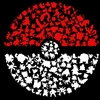The digits 1, 2, 3, 4, 5, 6, and 7 are randomly arranged to form a? three-digit number.? (digits are not? repeated.) find the probability that the number is even and greater than 700.
Answers (1)
Know the Answer?
Not Sure About the Answer?
Find an answer to your question 👍 “The digits 1, 2, 3, 4, 5, 6, and 7 are randomly arranged to form a? three-digit number.? (digits are not? repeated.) find the probability ...” in 📗 Mathematics if the answers seem to be not correct or there’s no answer. Try a smart search to find answers to similar questions.
Search for Other Answers
You Might be Interested in
40% of a certain number is 80 what is that number?
Answers (2)
What is 3/7 minus 2/5?
Answers (2)
Brady and Tim both work at SaveMore as cashiers for $7.68 per hour. This week, Brady worked 5 more hours than Tim. Write an expression in simplest terms that represents the total weekly wages for both boys using h for the number of hours Tim worked.
Answers (1)
Z^2-16z=-17 what is the solution?
Answers (2)
The Xbox had a 15% discount, but Hanna still had to pay $187 for it. What was the original price for the Xbox?
Answers (1)
New Questions in Mathematics
If you add a constraint to an optimization model, and the previously optimal solution satisfies the new constraint, will this solution still be optimal with the new constraint added?
Answers (1)
These are the first six terms of a sequence with a1= - 3: - 3, 8, 19, 30, 41, 52, ... Find a recursive formula for this sequence that is valid for n>1. Write your answer in simplest form.
Answers (1)
180 people filled out a survey about their favorite color. 95 of the respondents were female. 21 males responded that their favorite color is red.
Answers (1)
Kristin's three-year old sister is trying to arrange pink and red Starbursts in rows. She has 360 pink Starbursts and 150 red Starbursts.
Answers (1)
A plane is flying at 31,348 feet. It needs to rise to 37,000 feet in two stages. In stage 1, it rises 5% of its initial altitude of 31,348 feet. In stage 2, it rises at a rate of 140.3 feet per minute.
Answers (1)

